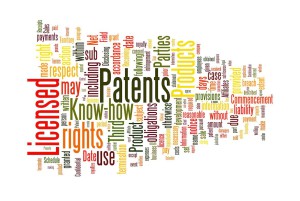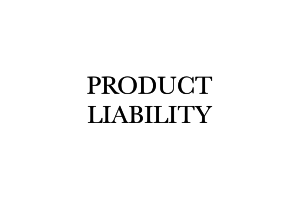The KORKEIN HALLINTO-OIKEUS, the supreme administrative court of Finland has recently submitted a request for a preliminary ruling to the ECJ[1]. The case has been fictitiously named Kosmiro (C-232/24) and is relating to VAT applicability to factoring operations. More precisely, the Finish court has posed 5 questions aimed to clarify the situation since there are still divergent opinions on how to consider, from a VAT perspective, the various activities a factor usually put in place. Are they mere financial operations, therefore VAT exempt; or, are they ultimately a service, to be charged of VAT?
Indeed, it seems that one can find both types, in a standard factoring operation. In general, factoring may be described as a contract where specialized subject A (the “factor”) takes care of cashing bulks of accounts receivables (ARs) of a client business (subject B). Those ARs are formally assigned to the factor, who opens a client account where the factor credits the ARs’ proceedings, less the agreed factor’s charges. Usually, the operation is on no-recourse basis (pro soluto, to utilize an old Latin expression – somebody also talk of “true factoring”). However, it is possible that the parties agree that defaulted ARs may be re-assigned to the client: so called “recourse factoring” (pro solvendo, or “quasi-factoring” as somebody says)[2]. Understandably, the latter instance has minor costs for the client. In addition, factors often offer their client services such as credit evaluation, consulting, and more important, prepayment of part of the ARs’ value.
So, if on one hand factoring may be considered essentially as a form of debt collection; on the other hand, the anticipation of money to the client may be undoubtedly seen, as it is de facto, as a form of financing – and factor’s consideration for this, should be VAT exempt. Some countries deal with this situation by allowing partial exemption (this is the case of the UK, although they are no longer an EU member)[3]; other prefer to look at the predominant character of the arrangement agreed between the parties. This approach is the one followed in Italy, for instance, where the ARs assignment against consideration is deemed as the “core” of a factoring deal, and the price of said assignment consists in the ARS face value less the agreed fees. The prepayment mentioned above, in this perspective amounts to just an anticipation of said price (Court of Cassation in the cases 9875/20 Ifitalia[4] and 27648/20 MC Elettrici[5]).
Now, the Kosmiro questions aim to clarify exactly whether –
-
The factor’s percentage fees in respect of a factoring taking the form of sale of debs, named “trade factoring”, are “to be regarded as an adjustment to the purchase price of the acquisition of the debts or as another item outside the scope of the VAT Directive”? and this amount to “a supply of services for reward falling within the scope of the VAT Directive”?
-
“fixed arrangement fee which is charged to the client for setting up and activating the factoring arrangement in the context of trade factoring to be regarded as a consideration for the supply to the client of a service falling within the scope of the VAT Directive”?
-
Are the mentioned fees to be considered as a “tax-exempt service”, according to the VAT Directive?
-
Are the factor’s fees to be considered as VAT-exempt “Where a factoring company finances its client by granting it credit so that that client’s invoiced debts is used as collateral for the finance provided by that company (factoring taking the form of financing guaranteed by invoices, ‘invoice factoring’)”?
-
And finally, “If the factoring commission or arrangement fee charged in the context of trade factoring or invoice factoring is to be wholly regarded, on the basis of the answer to question 3 or 4 above, as the consideration for a taxable service-, is the taxation of that service in application of the VAT Directive so clear and unconditional such that, where the taxable person so requests, that taxation be recognized as having direct effect even though the exemption from VAT provided for by the national VAT law covers, besides the granting of credit, other financing arrangements?”
The ECJ has already partially addressed these issues in the case MKG (2003): “a business purchases debts, assuming the risk of the debtors’ default, and, in return, invoices its clients in respect of commission, constitutes ‘debt collection and factoring”[6], an activity that is not exempted from VAT. In 2010, the ECJ adopted the same attitude in the case AXA UK in respect of financial support services for professionals that included collecting dentists’ account receivables[7].
As for Italy, in a recent decision concerning a no-recourse factoring, the appellate tax court in Ancona held that factor was basically expected to render a service[8]. Therefore, the proceedings of its activity shall be subject to VAT. This decision expressly refers to the case MC Elettrici of 2020 stating inter alia that a factoring on no-recourse basis has undeniably a financing component, but VAT exemptions must be applied restrictively.
The Italian tax authorities (namely the Agenzia delle Entrate, an operating arm of the Ministry of Economy) seem to have a different opinion. In an official statement (resolution no. 139/E of Nov 17, 2004) they claimed that factoring should be considered an exempted activity “being eminently financial in nature”. According to the Agenzia delle Entrate, this does not contradict ECJ MKG since factoring practice has developed differently in the Member States, and the practice in Italy is not the German one considered by the ECJ (sic!).
In 2011, Agenzia delle Entrate maintained this stance (resolution no. 32/E of March 11, 2011), when asked their opinion in the aftermath of ECJ’s AXA UK decision. This was reiterated by Resolution no. 35 of May 24, 2021. In conclusion, according to the Agenzia delle Entrate it is necessary to make an appraisal case by case, in order to apply VAT to a factor’s activity.
Those who are interested in receiving a free copy of the annotated materials, please write to newsletter@lexmill.com.
____________
[1] Request lodged on March 27, 2024 (in EU OJ C series of 10/06/2024). The main reference instrument is the Council Directive 2006/112/EC of 28 November 2006 on the common system of value added tax (OJ 2006 L 347, 1).
[2] This is the default option in Italian laws (art. 4.1 of Law 52/1991), although the practice goes to the opposite. As a matter of fact, law 52/1991 is not a regulation concerning factoring per se; rather, it regulates aspects concerning the assignment of receivables against a remuneration (which is just a component of a factoring operation).
[3] Partial exemption (VAT Notice 706) – see at https://www.gov.uk/guidance/partial-exemption-vat-notice-706#full-publication-update-history.
[4] Cassation Court (IT) judgement of May 26, 2020 in 9875/2020 Ifitalia.
[5] Cassation Court (IT) judgement of Dec 3, 2020 in 27648/20 MC Elettrici.
[6] ECJ judgement of June 26, 2003 in in C-305/01 Finanzamt Gross-Genau (DE) v MKG-Kraftfahrzeuge-Factoring GmbH. The case was concerning a 1991 recourse factoring of ARs of MMC-Auto Deutschland GmbH, a German importer of Mitsubishi cars. The factor’s fees were set at 2% as commission, 1% as a del credere, and average interest rate+1.8% on anticipations.
In 2011, ECJ also stated that the transfer of defaulted debts that the factor had purchased a price below their face value, are not taxable supplies for consideration (ECJ judgement of Oct 27, 2011 in C-93-10 Finanzamt Essen-NordOst (DE) v GFKL Financial Services AG).
[7] ECJ judgement of October 28, 2010 in C-175/09 Commissioners for Her Majesty’s Revenue and Customs (UK) v AXA UK Plc: “the exemption from VAT provided for by that provision does not cover a supply of services which consist, in essence, in requesting a third party’s bank to transfer to the service supplier’s account, via the direct debit system, a sum due from that party to the service supplier’s client, in sending to the client a statement of the sums received, in making contact with the third parties from whom the service supplier has not received payment and, finally, in giving instructions to the service supplier’s bank to transfer the payments received, less the service supplier’s remuneration, to the client’s bank account”.
[8] Corte Giustizia Trib. II grado Marche, judgement no. 1233 of Nov 11, 2022.













